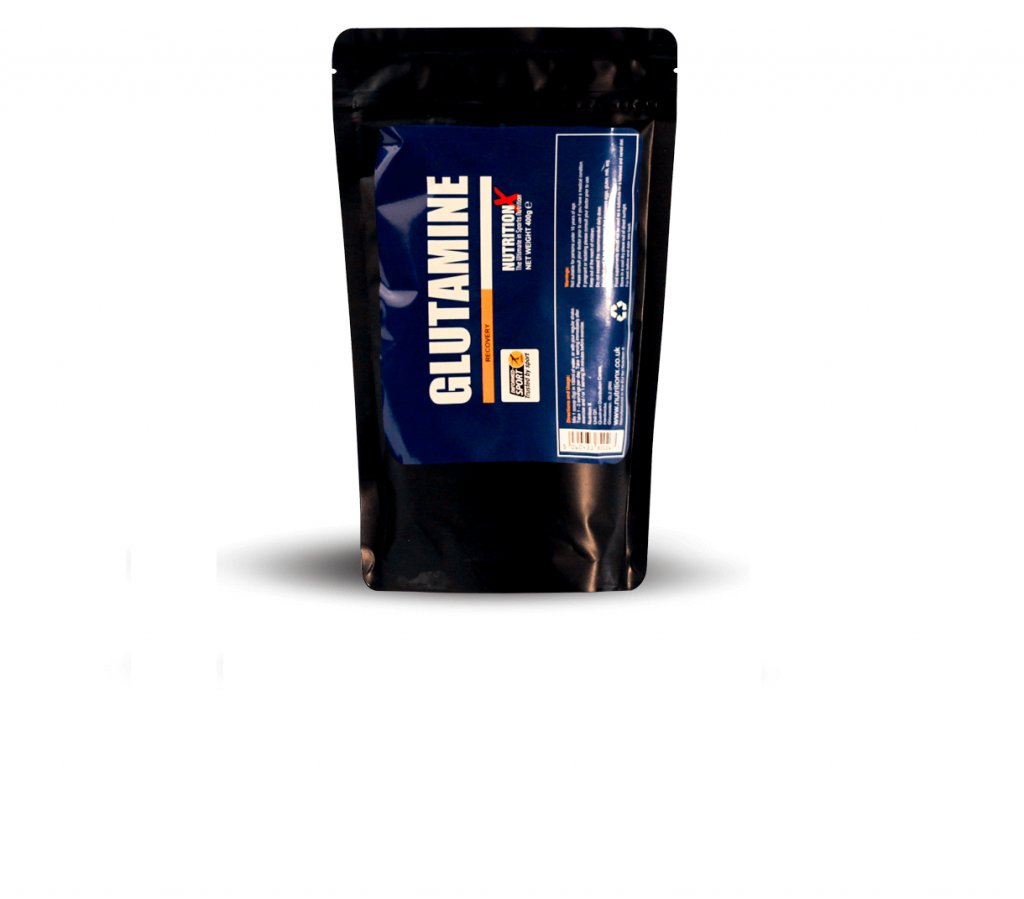Glutamine is a naturally occurring nonessential amino acid meaning that the body can produce its own and is abundantly stored in skeletal muscle and blood.
Glutamine plays a vital role in immune and intestinal health, glucose formation, acid-base regulation and acts as a precursor of nucleotides which are the building blocks of DNA formation [1].
Glutamine can be found in high amounts in animal products like meat and dairy and so including regular intakes of these foods in the diet can maintain the body’s glutamine levels to support its demand for many physiological processes.
There are also selected plant sources that have higher glutamine content on a percentage basis, but because plant sources have a lower protein content relative to meat and dairy sources they are not the best sources of dietary glutamine.
What is Glutamine?
Glutamine is a non-essential amino acid that is produced by our body naturally. It is abundantly found in skeletal muscle and blood. It also plays a role in acid excretion, collagen formation, and growth hormone secretion. Glutamine also supports immune health and gut function.
Importance Of Glutamine
Here are some importances of glutamine:
It Plays a Significant Role in Immune Health
Glutamine plays a vital role in supporting the immune system. It is a demanding source of fuel for immune cells, especially white blood cells and some intestinal cells. With that said, the level of glutamine can decrease because of some major injuries and surgeries.
Furthermore, an insufficient level of glutamine can hinder in functions of the immune system. Due to these reasons, diets containing glutamine-rich foods (animal proteins) and taking a glutamine supplement are recommended after major injuries and surgeries.
It Plays a Role in Intestinal Health
Glutamine also plays a significant role in promoting good gut health to enhance the digestion of food and protect against leaky guts. There is no significant benefit for glutamine supplementation in normal adults, who can achieve the amount of glutamine required through the body’s natural production and diets.
However, athletes who put their body and immune system under significant levels of stress, may benefit from additional glutamine as intense daily training can impact the gut lining and increase the risk of illness and nutrient malabsorption.
Is Glutamine Supplement Necessary?
Given that glutamine can be adequately sourced through the diet, it must be considered whether additional glutamine is required.
Supplementing with glutamine (typically 5g serving around training) is a popular strategy for many athletes with the belief that it will improve recovery and keep them healthy.
Endurance athletes put their bodies through high levels of stress given their physical training demands, and therefore require need additional energy and nutrients to support this.
Endurance events lasting >2 hours are associated with decreased plasma glutamine levels. So, do endurance athletes need to supplement with glutamine or can they get enough from the diet alone?
Supplement intakes are generally 5g per day which can also be obtained in whey protein or casein powders like Nutrition X’s Big Whey and Hypnos.
Daily intakes of 5g can be easily attained from food given that meat and dairy foods are primary glutamine sources, and athletes have higher protein requirements. However vegetarian or vegan athletes may struggle to achieve this.
Table 1. Glutamine content of select foods per 100g [2]
| Food Sources | Glutamine Per 100g | Quantity for 5g glutamine |
| Beef | 1.23g | 406g |
| Milk | 0.28g | 1.78 Litres |
| Egg | 0.56g | 19 eggs |
| Tofu | 0.6g | 830g |
| White rice | 0.3g | 1.6kg |
| Corn | 0.4g | 1.25kg |
Does Glutamine Supplement Work?
Gastrointestinal issues are common in endurance athletes and glutamine supplementation reduces intestinal permeability (also known as leaky gut) [3].
Glucose metabolism is improved by blunting spikes in blood glucose and insulin in response to carbohydrate intake [4].
Post-exercise glycogen replenishment rates may also be enhanced when carbohydrates are combined with glutamine [5].
Intense endurance training places additional stress on the immune system and increases the risk of upper respiratory tract infections. Glutamine supplementation has been shown to reduce this response [6].
Glutamine supplementation enhances rates of muscle protein synthesis in trauma victims or patients suffering from muscle wasting diseases, however, there is no evidence of this in healthy human populations.
There also appears to be no benefit of glutamine supplementation on muscle repair or symptoms of muscle soreness after exercise induced muscle damage (downhill running) [1].
Is Glutamine Worth It: Conclusions
- Glutamine is important for optimal immune and intestinal function and glycogen synthesis.
- Meat and dairy are great dietary sources of glutamine.
- Daily intakes of 5g can be achieved through the diet.
- Vegetarian or vegan athletes likely require a supplement to maintain glutamine levels.
- Supplementation may be beneficial during periods of high volumes of training to boost gut function, replenish muscle glycogen stores and prevent illness.
- Supplements should be Informed-Sport certified.
**Get 20% off all Nutrition X products using code 20NX.
References
- Gleeson, M. et al. (1998). The effect of severe eccentric exercise-induced muscle damage on plasma elastase, glutamine and zinc concentrations. European Journal of Applied Physiology and Occupational Physiology, 77, 543–546.
- Lenders, C. M. et al. (2009). Evaluation of a novel food composition database that includes glutamine and other amino acids derived from gene sequencing data. European Journal of Clinical Nutrition, 63, 1433-1439.
- Zuhl, M. et al. (2015). The effects of acute oral glutamine supplementation on exercise-induced gastrointestinal permeability and heat shock protein expression in peripheral blood mononuclear cells. Cell Stress and Chaperones, 20, 85-93.
- Awad, S. et al. (2011). A randomized cross-over study of the metabolic and hormonal responses following two preoperative conditioning drinks. Nutrition, 27, 938-942.
- Bowtell, J. et al. (1999). Effect of oral glutamine on whole body carbohydrate storage during recovery from exhaustive exercise. Journal of Applied Physiology, 86, 1770-1777.
- Castell, L. M. et al. (1996). Does glutamine have a role in reducing infections in athletes? European Journal of Applied Physiology and Occupational Physiology, 73, 488–490.
Also Read: Are Protein Supplements Necessary?






